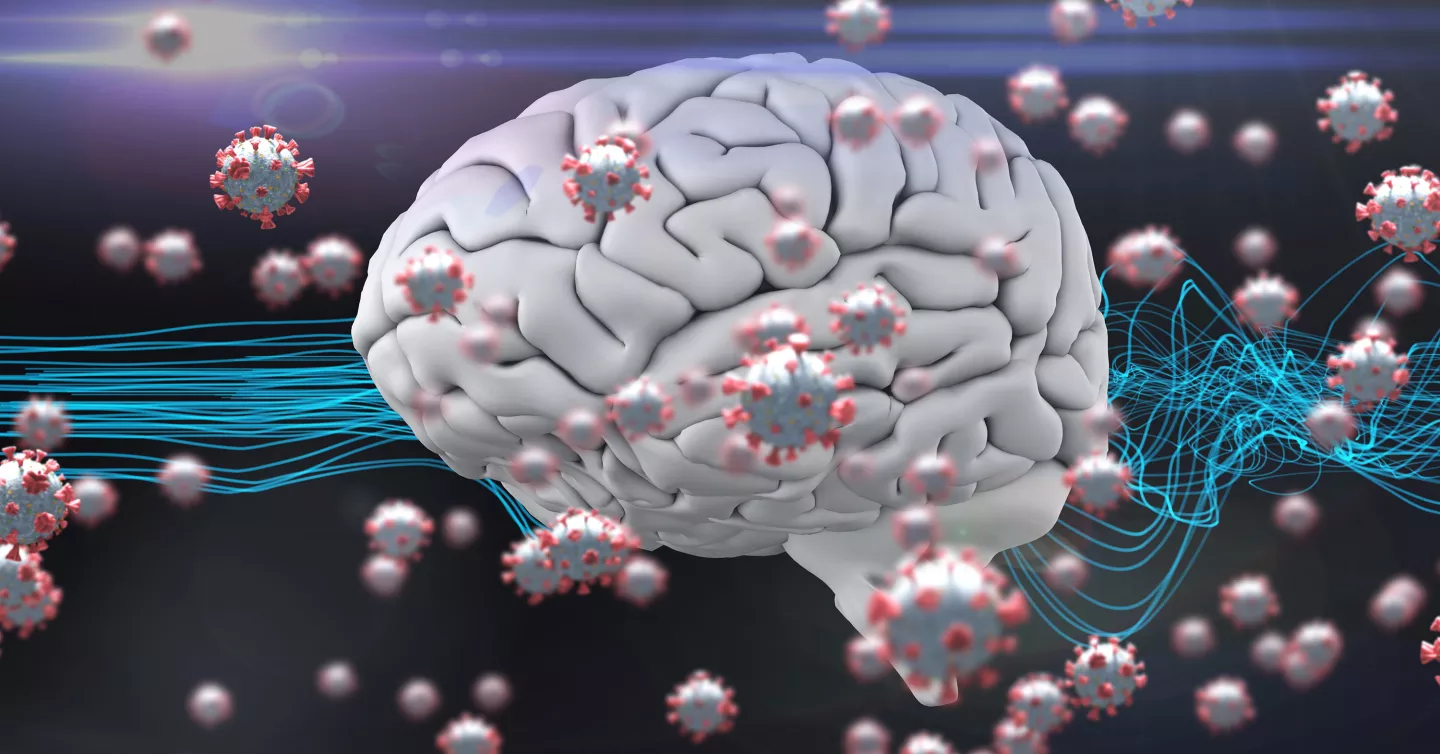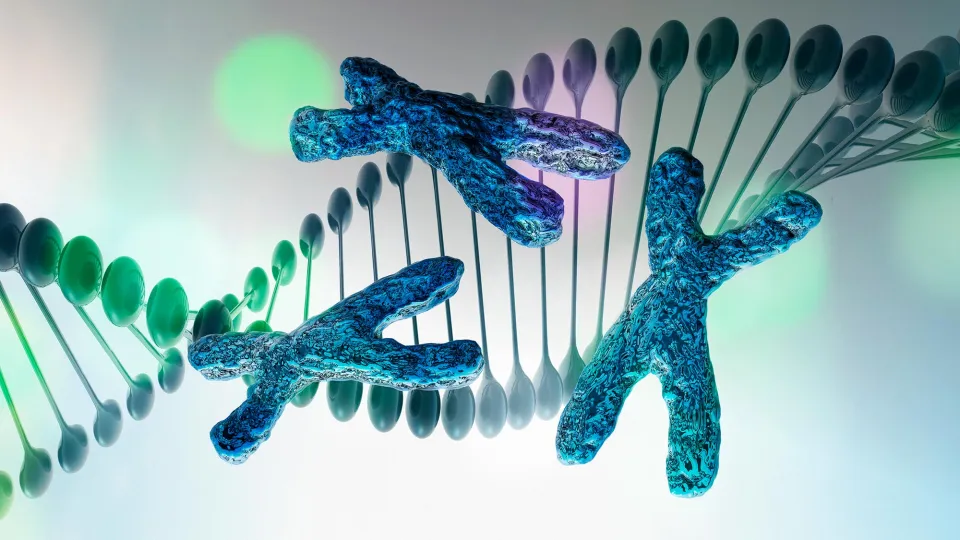News Brief
Mild COVID-19 Associated with Brain-Structure Changes
September 18, 2024

Studies of older adults have revealed changes in both brain structure and cognitive ability following a bout of COVID-19.
Now, a small study led by Johanna Daily, M.D., M.S., and Joan Song, M.S., has detected those changes in young adult COVID-19 patients who had mild disease and were not hospitalized. The study involved 20 younger adults (aged 24 to 57), all of whom were healthy prior to the pandemic. All had previously participated in neuroimaging and cognitive studies, allowing for baseline data. Five of the 20 went on to develop mild COVID-19 and the other 15 participants were controls who did not have COVID-19. After comparing participants’ pre- and post-pandemic neuroimaging data, the researchers identified a decrease of intracellular volume fraction and other adverse microstructural changes in the brains of COVID-19 patients; the changes were significantly different from control individuals, who were found to have improvements in those measures. Neurocognitive studies identified a pattern of cognitive decline (processing speed, executive function, verbal learning, working memory) in COVID-19 patients that did not reach significance. In addition to suggesting that mild COVID-19 may cause brain pathology in younger adults, the study provides benchmarks for the effects of COVID-19 on the brain that could be useful in studies of therapies for treating long COVID-19. The research was published online on July 16 in Heliyon. The study has expanded to one hundred patients to further define the effects of COVID-19 on brain function.
Dr. Daily is professor of microbiology & immunology and of medicine at Albert Einstein College of Medicine and an infectious disease physician at Montefiore Health System. Ms. Song is an MD/PhD student at Einstein. The study’s co-corresponding author was Michael Lipton, M.D., Ph.D., formerly at Einstein and now at Columbia University Irving Medical Center.



